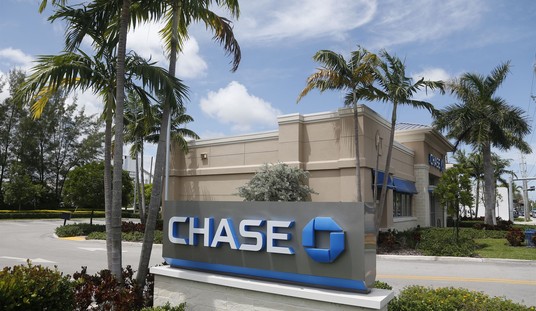An earlier article described how Valerie Jarrett, best known as President Obama’s most intimate White House Advisor, turned a job in the Chicago mayor’s office into a personal real estate holding worth as much as $5 million. This is not unusual. Big real estate deals in major American cities are the mother’s milk of politics. Developers get rich from special tax and other deals, politicians get campaign contributions, and former politicians or former aides charge for access.
Here is one way it is done:
Step 1: Collect property taxes in a “redevelopment” agency.
Step 2: Use these funds to subsidize favored developers or businesses.
Step 3: Or use these funds to build major projects which favored developers or businesses can buy at deep discounts.
Step 4: Waive property taxes.
Step 5: In some cases, promise payments to a new business coming in equal to whatever their employees pay in state or local taxes.
All this and more has happened in Los Angeles. No wonder local retail developer Jose de Jesus Legaspi says “It’s extremely difficult to do business in Los Angeles. . . . Everyone has to kiss the rings of the [City Hall politicians.]”
Sometimes, like Valerie Jarrett, the political dons do not wait to leave office before enriching themselves personally. And sometimes this is not done with any subtlety. In the town of Bell, CA, the city manager was caught paying himself $1.5 million (salary and benefits) a year, with a $600,000-a-year pension obligation. An assistant manager was paid $845,960, the police chief $700,000 (while laying off police), and city councilmen $100,000 for part-time “work.” After all this came to light, the top three offenders were forced out and the city councilmen cut to $10,000.
To emphasize the point that not all state and local cronyism involves unions, one need only look at union-unfriendly Texas. Here is what Dave Nalle, secretary of the in-state Republican Liberty Caucus, says about Republican Governor Rick Perry:
Recommended
Perry . . . loves to use taxpayer money to subsidize his business cronies. . . . His supposed belief in limited government and in states’ rights conveniently disappears whenever it conflicts with the demands of the special interests and corporate cronies he serves.346
Nalle also recounts how Perry set up the Texas Enterprise Fund and Texas Emerging Growth Fund which enabled him to pour at least $43 million of the $700 million funds into alleged crony businesses.
We have already described in an earlier chapter how Perry mandated a dangerous vaccine for teenage girls while taking money from the vaccine’s manufacturer. When FEMA and other federal disaster funds became available after Hurricane Katrina, Perry allegedly tried to divert them to his allies. The Obama administration objected, but a “deal” was struck on $3.2 billion of allocations.348 The Governor’s wife, Anita, has worked as a fundraiser for the Texas Association Against Sexual Assault. This group receives donations from state agencies, including the governor’s office, as well as from Perry political donors.
Although much of the cronyism at the state and local level involves unions, developers, or other business interests, nonprofits are often part of the action. The Academy of Nutrition and Dietetics, formerly the American Dietetic Association, has been trying for years to set up state licensing boards that would, in effect, create a nutritional counseling monopoly for its members. The organization already has a monopoly on Medicare reimbursement, achieved by careful cultivation of federal contacts over the years, and monopolies on advising hospitals, prisons, and schools on food programs. The nutritional value, much less the taste of most hospital and school food, run by AND members, speaks for itself. In addition, AND members need only hold a college degree, so that the effect of AND’s restrictive state licensing efforts is often paradoxically to exclude nutritionists with masters and PhD degrees.
The theme of eliminating or trying to eliminate competition through deals with state or local legislators is a familiar one. In New Jersey, when the president of the Liquor Store Alliance was asked why state law does not allow microbrew pubs, he replied that he didn’t mind giving the microbrews a few breaks, but “what we don’t want to do is become competitors with one another.”
In addition, in Louisiana, a state funerals board (eight of whose nine members were from industry) Not All State and Local Cronyism Involves Unions • 237 ruled that the monks of St. Joseph Abbey in Covington could not continue to make simple, handmade pine and cypress caskets.352 In Nashville, Tennessee, taxi companies persuaded the city to require a minimum $45 charge for any limo ride, to regulate the age of any limo used, and to forbid cell phone dispatching, which is what new limo companies or drivers do.353 In Chicago and Washington, DC, the use of a cell phone app by a new service named Uber set the taxicab commission to fuming and the established companies to suing. The DC City Council proposed an amendment that would have legalized Uber, but only if the minimum charge was five times the average taxi cab fare.
The purpose of all these laws is to limit competition, restrict the number of competitors, bar new entrants, and thus protect established companies with ties to politicians. In Virginia, interior designers are required to get a four-year design degree, intern with a licensed designer for two more years, and pass an exam before applying for the certification needed to work.355 Hairdressers in most states have to jump through numerous such hoops. Sometimes local authorities have an additional motive: to collect fees or taxes. Philadelphia has sent out notices to local internet bloggers informing them that they owe a $300 city business license fee.
In this atmosphere, the only certain growth industry seems to be political lobbying. Everyone needs a lobbyist. Even governments need lobbyists, since local governments must troll for deals with the state government and both local and state governments must troll for deals with Washington. For the decade ending 2010, local and state governments reportedly spent $1.2 billion on federal lobbying. There were 13,000 registered lobbyists working in Washington, but the total number of people seeking to influence legislation is far greater.

























Join the conversation as a VIP Member